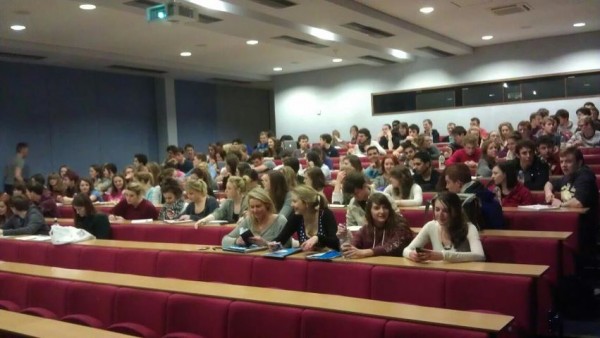
February 13, 2012, by lgzacc
A Day in the Life of Geographer … Andy Cook
Over the weeks in my blog slot I will be offering some insights into the day-to-day life of being a geographer, a lecturer, a researcher and hopefully getting across why I, and many others feel so passionate about our discipline and why geography ‘matters’. Not purely in a technical, theory heavy, academic way but in the way we live our lives, understand the world, our place within it and how we can become active participants in our world. That sounds a little pretentious but there are few disciplines as internally diverse. In 3 neighbouring offices here at Nottingham you may have an expert in shallow lake ecosystems (take a bow co-blogger Suzanne McGowan), the historical geographies of prostitution in colonial Delhi (Dr. Steve Legg) and the biographies of unicorns (Dr. Lavers). It is this diversity of approaches, philosophies and practices that renders life as a geography academic significantly more fascinating than as any other. Testament to this are the numerous ale fuelled discussions I have had (bearing mind I am very much an economic geographer) with physical geographers (often in the salubrious confines of the Hemsley) concerning boat handling, diatoms and benthic invertebrates.
My main tasks this week focus upon lecture writing (having just finished one on the ‘new economy’) meetings with dissertation students, first year tutorial meetings, admin relating to the first year fieldcourse, writing a report on the financial crisis and finishing off a paper I am writing on financial crime and criminality. As you can see it proves to be a hectic week with lots of bits and pieces to achieve to ensure the smooth running of everything.
The primary task will be teaching 150 second years (see photo, looking rapt, eager and generally motivated as regards the Italian artisanal shoe industry) on ‘global production systems’. Now, this can potentially sound like a particularly off putting way of framing something put bear with me. Much of the 20th century was characterized by industrial mass production (thanks to Henry Ford) whereas recently there have been a set of transformations in the ways in which commodities and things are made which effects the role of workers, the ownership structures of firms and the innumerable ‘soft’ factors (such as knowledge and ‘know-how’) that drive economic activity across the globe and render productive activity a geographical emphasis. By understanding the way in which manufacturing is organized in a capitalist society we can, as geographers, begin to think about how we could make things better. By ‘better’ this could be more efficient, more ethical, contemplate increased regulation on risk laden sectors, devise solutions to limit offshore tax evasion, have a more positive impact on the environment and so on. We therefore need a technical grounding of concepts and theories from which we can extrapolate and experiment with to encourage the development of new economic, social and political futures.
On Tuesday (at 2 o’clock to be precise) I will therefore be exploring how business and the state can combine in novel ways to create productive industrial landscapes on the one hand but, on the other, exploit and render precarious the productive labour, work, effort, hope and creativity, that goes into the process by workers. I will be drawing upon the maquiladores of the Northern Mexico to explore how a desire to rapidly grow an economy can have significant impacts upon the identity and livelihoods of workers (their gender, social status and ethnicity). It is these linkages and contradictions, what have been termed the ‘Janus face’ of capitalism, that drive me forward in understanding how we can iterate a somehow better future. Later in the week I will be discussing how some recently completed research has impacted upon understanding the entry barriers facing individuals from ‘non-traditional’ backgrounds in the City of London.
No comments yet, fill out a comment to be the first

Leave a Reply